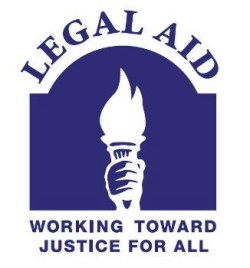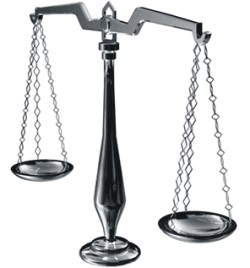Law Analysis
Legal Aid Service: Balance of equality for the pauper people
Mahdy Hassan
 |
Photo: loyarburok |
The concepts of 'rule of law' 'equality before law', and 'equal protection of law' are safeguards for the citizen irrespective of caste, faith, social and pecuniary status. Regrettably, all citizens are not equally advantaged to get the benefits of law. The citizen of any country of the world is not enjoying fair justice due to pecuniary constraints and social inequality. The Constitution of Bangladesh has in clear terms recognized the basic fundamental human rights. One of the basic fundamental rights is that all are equal before law and are entitled to equal protection of law (Article 27 of the Constitution of the People's Republic of Bangladesh). Article 14 of the said constitution stipulates that it shall be the fundamental responsibility of the state to emancipate backward sections of the people from all forms of exploitation; Article 31(2) guarantees protection of law that the citizens and the residents of Bangladesh have the inalienable right to be treated in accordance with law; Article 35(3) ensures speedy and fair trial. A range of international documents have also been framed for the safeguard of these rights. Articles 7, 8 and 10 of the Universal Declaration of Human Rights1948, Article 14 of the International Covenant on Civil and Political Rights 1966, Articles 6 (1) and 20 (1) of the Commonwealth of Independent States Convention on Human Rights and Fundamental Freedoms1995. Article 9 of the Arab Charter on Human Rights 1994, Article 3 of the African Charter on Human and People Rights 1981, Article 24 of the American Convention on Human Rights 1978.
For the following reasons, all these guarantees become worthless without providing any legal aid to the indigent persons. Firstly: In a suit where one party is poor and the other party is affluent, here equality, rule of law, and fair trail ensured in our constitution and other constitutions and documents of the world can not be maintained because the affluent party is able to appoint an expert advocate who can easily take the fruits of the suit in favor of his clients whereas the opposite advocate fails to do so. Secondly: access to justice is prevented for the poor by high legal costs, here costs include court fee, process fee, advocate fee, and other incidental costs. Thirdly: delay in disposal of a civil suit, in our country for the disposal of a civil suit several years are required, but poor litigants after struggling one or two years, lose their every thing and fail to move the suit. So the courts pronounce decree in favor of the strong party. Fourthly: a big number of people of the country are ignorant as to their rights. So without giving them any legal assistance, they can not ensure their rights. For this reason to give the pauper people legal assistance and ensure their rights the government has enacted the Legal Aid Services Act 2000 (LASA) ant it is amended in 1st December, 2011 which is a judiciary program, delivered at the District level (Bangladesh is divided into 64 Districts for administrative purposes) through a committee chaired by the District and Sessions judge (the highest position in the lower judiciary at the District level), under the central authority of a semi-autonomous body corporate, the National Legal Aid Organization (NLASO).
 |
Photo: whatspinksthinks |
Who is entitled to apply for Legal Aid? In the Act, there is no reference as to the eligibility criteria to get a hold legal aid. Consequently, the Ministry of Law, Justice and Parliamentary Affairs formulated guidelines and rules like the Legal Aid Policy, 2001 under section 24 of the Legal Aid Service Act, 2000 to carry out the objectives of the Act. Rule 2 of the legal Aid Policy, 2001 spells out the following categories of persons as eligible for looking for legal aid; Freedom fighter who is incapable of earning or partially incapable of earning or whose yearly income is not above 75 thousand taka or who is without any employment. The person who is receiving old age honorarium; Poor women who is holder of VGF Card; Women and children who are victim of trafficking; Women and children who are acid-burnt by the miscreants; Any person who has been allocated land or house in an “ideal/model” village; widow, women deserted by her husband; Physically or mentally handicapped person who is incapable of earning and without means of subsistence; Person who is unable to establish his/her right to defend him/her in a Court of law due to financial crisis ; Any person who has been detained without trial and is incapable to defend himself due to financial crisis; Any person who is considered by the Court as poor or helpless; Any person who is recommended by the Jail authority as financially helpless or poor; Any other person who are considered by the Legal Aid Board from time to time due to the financial crisis or any other socio-economic reasons or disaster. In this policy, the phrase “poor and financially poor person” will be used to mean persons whose annual income is not above fifteen thousand taka.
Where and how to apply for legal aid? Section 16 of the said act spells out how to apply for legal Aid. As per this section all applications for in receipt of legal aid must be submitted to the National Board of Legal Aid or in appropriate cases to the District Legal Aid Committee. If an application is discarded by the District Committee and the person feels distressed by that verdict, then the applicant may have a preference an appeal to the National Legal Aid Board within 60 days of the pronouncement of the decision of the District Committee. Apart from the aforesaid provision, section 3 of the Legal Aid Regulations, 2001 provides broadly how to make an application for Legal Aid; The candidate shall apply, along with his Full name and address and the underlying causes for his application, in a white paper; if the application is made for legal aid for any matter in the Supreme Court, it is to be submitted to the Chairman of the organization, on the other hand, if it is for legal aid in any contract, it is to be made to the chairman of the District Committee; The application accepted by the committee is considered in its next meeting; If it is not possible for the committee to take decision based on the submitted information then the committee may require for further information; Once any application considered to have been accepted, the applicant litigant shall be informed in the prescribed manner.
On a careful analysis of the said act, regulation and policy some loopholes become apparent to us which are as follows, for example, the members of the committees are from upper strata so they often fail to realise the miseries of the penurious litigants. No remuneration for the members of the committee so they are reluctant to do these activities. The act does not specify criminal or civil cases for which legal aid can be provided. The responsibility of boards and committees are voluntary services and there is no accountability. There is no representation of poor people in the board or committee and hardly the present board/ committee can feel the gravity of situation. The directorate is unable to perform properly due to lack of manpower and other logistics. For these defects a poor litigant can not take the benefit of this Act. In conclusion I want to say that to ensure fundamental rights and rule of law for the poor litigants with the affluent litigants, government should immediately take effective and realistic steps and rearm the Legal Aid Services Act 2000 (LASA).
The writer is a student of law, University of Dhaka.